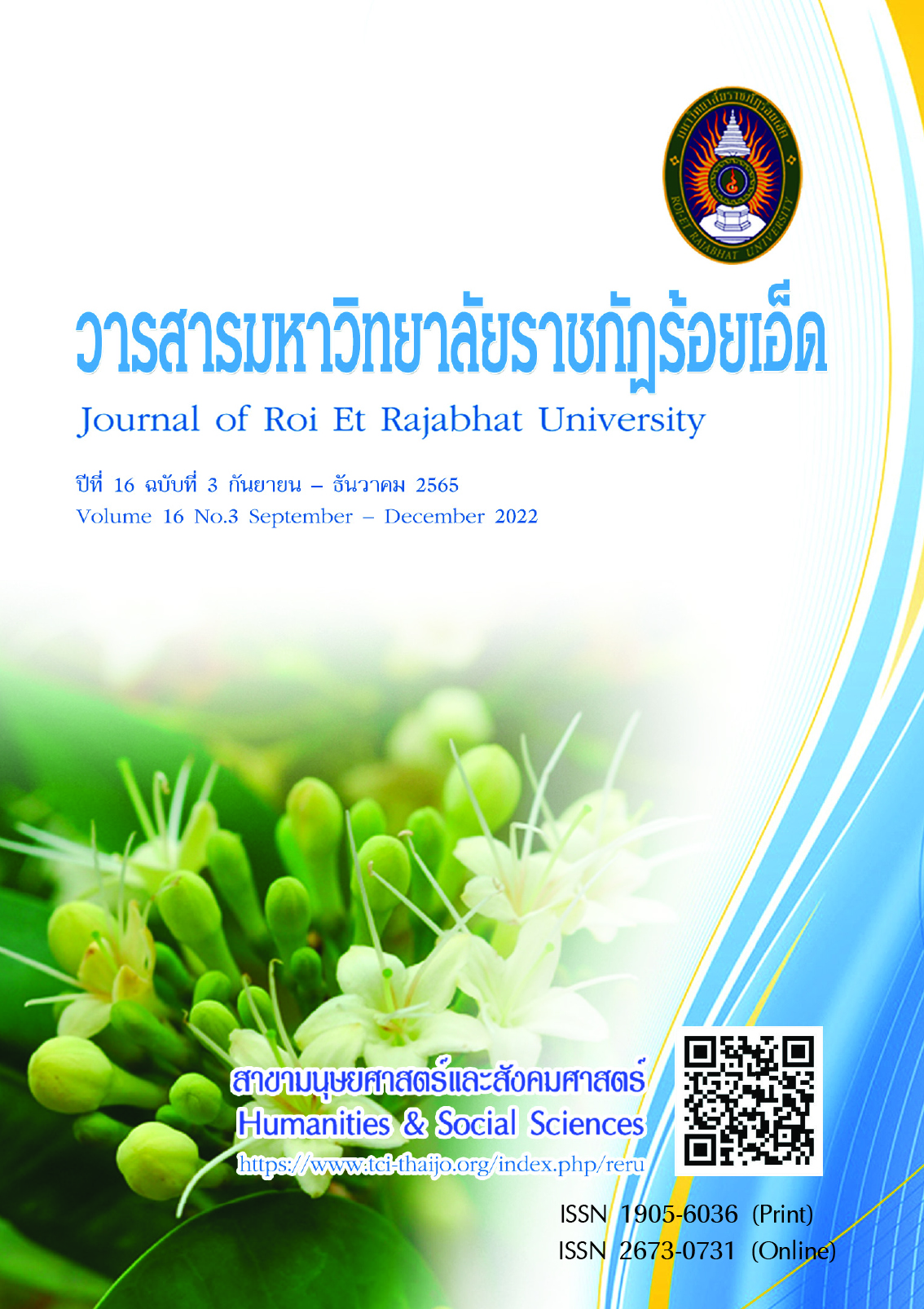Mild Cognitive Impairment
Keywords:
Mild cognitive impairment, Memory, DementiaAbstract
Mild cognitive impairment (MCI) is a condition that exists between dementia and normal aging forgetfulness. It is caused by a decline in brain function as well as a decrease in nerve cells. This disease spreads from part of the brain to the frontal lobe, affecting the prefrontal cortex and hippocampus. Eventually, the neurotransmitter acetylcholine was depleted. The spread of degeneration is gradual and consistent. Several years after neurons that functioned for remembering information were destroyed, the disorder could be defined.
The main symptoms of MCI were memory-related, which led to dementia. This will then have an impact on daily life activities. Medication and non-medication treatments were used to treat MCI. Because the majority of the drugs used side effects, they may aggravate the patient's symptoms. The researchers suggested non-medication treatments for this illness, such as memorizing, cognitive training, and activity therapy. These techniques are aided in the creation of balance in the brain and stimulates neuronal connections.
It has the potential to effectively reduce or prevent dementia in the elderly. According to the literature reviews, people with MCI are at a higher risk of developing dementia than the general population. The reviews covered the causes of the disease, the nature of the disease, the signs and symptoms, the factors, the effects, and the treatment. Therefore, this study presented the subject to elderly with MCI which are aimed at them who have a basic understanding of MCI and disease prevention in order to protect themselves correctly from dementia.
References
กรวรรณ ยอดไม้. 2560. บทบาทครอบครัวกับการดูแลผู้สูงอายุภาวะสมองเสื่อมในชุมชน. Journal of Public Health Nursing, 11(1), 189-204.
จินตนา อาจสันเที๊ยะ และรัชณีย์ ป้อมทอง. (2561). แนวโน้มการดูแลผู้สูงอายุในศตวรรษที่ 21: ความท้าทายในการพยาบาล. Journal of The Royal Thai Army Nurses, 19(1), 39-46.
ชัชวาล วงค์สารี และศุภลักษณ์ พื้นทอง. (2561). ภาวะสมองเสื่อมในผู้สูงอายุ: การพยาบาลและการดูแลญาติผู้ดูแล. HCU Journal, 22(43-44), 166-179.
ชุติมา ทองวชิระ, ณัฐรพี ใจงาม และสุชาดา โทผล. (2562). รูปแบบการป้องกันภาวะสมองเสื่อมของผู้สูงอายุในชุมชนเขตตลิ่งชัน กรุงเทพมหานคร. KKU Research Journal (Graduate Studies), 19(3), 96-108.
เดชา วรรณพาหุล. (2560). การพัฒนาโปรแกรมฝึกบริหารสมองสำหรับเพิ่มความจำระยะสั้นในผู้สูงอายุ: การศึกษา ศักย์ไฟฟ้าสมองสัมพันธ์กับเหตุการณ์. Journal of Rajanagarindra, 13(30), 51-61.
ดุษฎี อุดมอิทธิพงศ์, พิชญา ชาญนคร, ธิติมา ณรงค์ศักดิ์ และนภาพิศฉิมนาคบุญ. (2564). การกระตุ้นการรู้คิดสำหรับผู้สูงอายุที่มีภาวะการรู้คิดบกพร่องเล็กน้อย. วารสารสถาบันจิตเวชศาสตร์สมเด็จเจ้าพระยา, 15(1), 62–83.
ดาราวรรณ รองเมือง, ฉันทนา นาคฉัตรีย์, จีราพร ทองดี และจิตติยา สมบัติบูรณ์. (2561). อุบัติการณ์ของการหกล้ม และปัจจัยที่มีความสัมพันธ์กับการหกล้มในผู้สูงอายุที่อาศัยในชุมชน จังหวัดสุราษฎร์ธานี. Journal of Phrapokklao Nursing College, 27(suppl. 1), 123-138.
ทัศนีย์ กาศทิพย์, สุปรีดา มั่นคง และพรทิพย์ มาลาธรรม. (2562). ภาวะสุขภาพของผู้สูงอายุที่มีภาวะรู้คิดบกพร่อง. Thai Journal of Nursing Council, 34(1), 104-121.
ประเสริฐ อัสสันตชัย. (2556). ปัญหาสุขภาพที่พบบ่อยในผู้สูงอายุและการป้องกัน (พิมพ์ครั้งที่ 4). กรุงเทพฯ: ยูเนี่ยน ครีเอชั่น.
ปิยะภร ไพรสนธิ์ และพรสวรรค์ เชื้อเจ็ดตน. (2560). ปัจจัยที่มีความสัมพันธ์กับภาวะการรู้คิดบกพร่องเล็กน้อยในผู้สูงอายุ จังหวัดเชียงราย. Thai Journal of Nursing Council, 32(1), 64-80.
ปิ่นมณี สุวรรณโมสิ และจิราพร เกศพิชญวัฒนา. (2559). ผลของโปรแกรมกระตุ้นการรู้คิดต่อความจำของผู้สูงอายุในชุมชนที่มีการรู้คิดบกพร่อง. Journal of the Police Nurses, 8(2), 45-57.
พัฒน์ พงษ์วิจิตร. (2555). เทคนิคพัฒนาสมองเพิ่มพลังความจำ. กรุงเทพฯ: ไพลิน บุ๊คเน็ต.
ภิญาภร โตญาติมาก, เกศรินทร์ อุทริยะประสิทธ์, วัลย์ลดา ฉันท์เรืองวณิชย์ และบรรพต สิทธินามสุวรรณ. (2562). ปัจจัยทำนายความบกพร่องด้านการรู้คิดในผู้ป่วยภายหลังการผ่าตัดเนื้องอกสมอง. Thai Journal of Nursing Council, 34(4), 64-79.
มุกดา หนุ่ยศรี. (2559). การป้องกันโรคสมองเสื่อม. วารสารพยาบาลตำรวจ, 8(1), 227-240.
วลี รัตนวัตร์, ดาวชมพู นาคะวิโร, และภัทรพร วิสาจันทร์. (2561). ความชุกของภาวะความสามารถของสมองบกพร่องเล็กน้อยในบุคลากรโรงพยาบาลช่วงวัยก่อนเกษียณ. Journal of the Psychiatric Association of Thailand, 63(1), 55-64.
ศิริกุล การุณเจริญพาณิชย์. (2558). ผู้สูงอายุที่มีภาวะสมองเสื่อมและการพยาบาล: บทบาทที่ท้าทายของ พยาบาล. Nursing Journal of The Ministry of Public Health, 25(1), 1-12.
สมฤดี ชุมแก้ว, วิไลวรรณ สีนุ้ย และวิดาวรรณ จำปา. (2563). ผลของโปรแกรมกล่มส่งเสริมการรู้คิดต่อความสามารถในการรู้คิดในผู้ป่วยจิตเภทที่มีภาวะพุทธิปัญญาบกพร่อง. วารสารสถาบันจิตเวชศาสตร์สมเด็จเจ้าพระยา, 14(1), 23-38.
สาวิตรี จีระยา, ภรภัทร เฮงอุดมทรัพย์, ดวงใจ วัฒนสินธุ์ และเวทิส ประทุมศรี. (2562). ผลของโปรแกรมกระตุ้นการรู้คิดต่อการรับรู้สมรรถนะแห่งตนด้านความจำในผู้สูงอายุที่มีการรู้คิดบกพร่องเล็กน้อย. วารสารคณะพยาบาลศาสตร์ มหาวิทยาลัยบูรพา, 26(2), 30-39.
Dementia Australia. (2021). WHAT IS DEMENTIA?. Retrieved April 17, 2021, from https://www.dementia.org.au/
sites/default/files/helpsheets/Helpsheet-AboutDementia01-WhatIsDementia_thai.pdf
Gao, Y., Huang, C., Zhao, K., Ma, L., Qiu, X., Zhang, L., and Tang, Y. (2013). Retracted: Depression as a risk factor for dementia and mild cognitive impairment: a meta‐analysis of longitudinal studies. International Journal of Geriatric Psychiatry, 28(5), 441-449.
Kontaxopoulou, D., Fragkiadaki, S., Beratis, I. N., Pavlou, D., Yannis, G., Papanicolaou, A. C. and Papageorgiou,
S. G. (2016). Incidental and intentional memory performance in depression and amnestic mild cognitive impairment. Neuropsychologia, 43(5), 675-681.
Langa, K. M. and Levine, D. A. (2014). The diagnosis and management of mild cognitive impairment: a clinical review. Jama, 312(23), 2551-2561.
Pellegrino, L. D., Peters, M. E., Lyketsos, C. G. and Marano, C. M. (2013). Depression in cognitive impairment. Current Psychiatry Reports, 15(9), 1–8.
Rutten, J. L. (2017). “Prevention is Better than Cure”: Can Exercise Prevent Dementia?. Maastricht Student Journal of Psychology and Neuroscience, 6(1), 1-12.
Sekiguchi, A. and Kawashima, R. (2007). Cognitive rehabilitation--the learning therapy for the senile dementia. Brain and Nerve= Shinkei kenkyu no shinpo, 59(4), 357-365.
Senanarong, V., Harnphadungkit, K., Poungvarin, N., Vannasaeng, S., Chongwisal, S., Chakorn, T. and Udompunthurak, S. (2013). The dementia and disability project in Thai elderly: rational, design, methodology and early results. BMC Neurology, 13(1), 1–11.
Subindee, S. and Sritanyarat, W. (2014). Mild cognitive impairment in older persons with chronic illness attended at a chronic care clinic of a primary care unit Khon Kaen Province. Journal of Nursing Science and Health, 37(1), 43-50.
Tsolaki, M., Kakoudaki, T., Tsolaki, A., Verykouki, E. and Pattakou, V. (2014). Prevalence of mild cognitive impairment in individuals aged over 65 in a rural area in North Greece. Advances in Alzheimer's Disease, 3(01), 11-19.
United Nations. (2015). World Population Ageing. New York: United Nations.
Ward, A., Arrighi, H. M., Michels, S. and Cedarbaum, J. M. (2012). Mild cognitive impairment: disparity of incidence and prevalence estimates. Alzheimer's & Dementia, 8(1), 14-21.
World Health Organization. (2016). Mental health and older adults. Retrieved November 14, 2016, from http://www.who.int/mediacentre /factsheets/fs381/en/ Updated April 2016.
Downloads
Published
How to Cite
Issue
Section
License
Copyright (c) 2022 Roi Et Rajabhat University

This work is licensed under a Creative Commons Attribution-NonCommercial-NoDerivatives 4.0 International License.
บทความที่ได้รับการตีพิมพ์เป็นลิขสิทธิ์ของวารสารมหาวิทยาลัยราชภัฎร้อยเอ็ด
ข้อความที่ปรากฏในบทความแต่ละเรื่องในวารสารวิชาการเล่มนี้เป็นความคิดเห็นส่วนตัวของผู้เขียนแต่ละท่านไม่เกี่ยวข้องกับมหาวิทยาลัยราชภัฎร้อยเอ็ด และคณาจารย์ท่านอื่นๆในมหาวิทยาลัยฯ แต่อย่างใด ความรับผิดชอบองค์ประกอบทั้งหมดของบทความแต่ละเรื่องเป็นของผู้เขียนแต่ละท่าน หากมีความผิดพลาดใดๆ ผู้เขียนแต่ละท่านจะรับผิดชอบบทความของตนเองแต่ผู้เดียว





